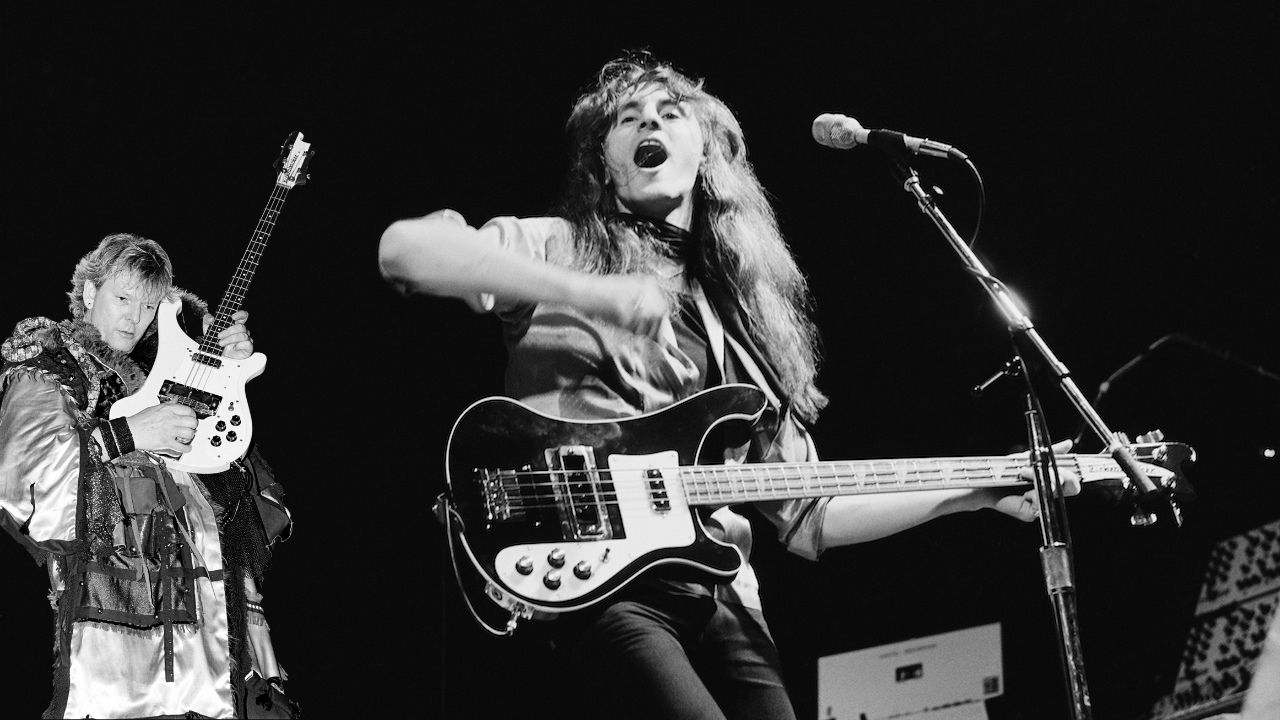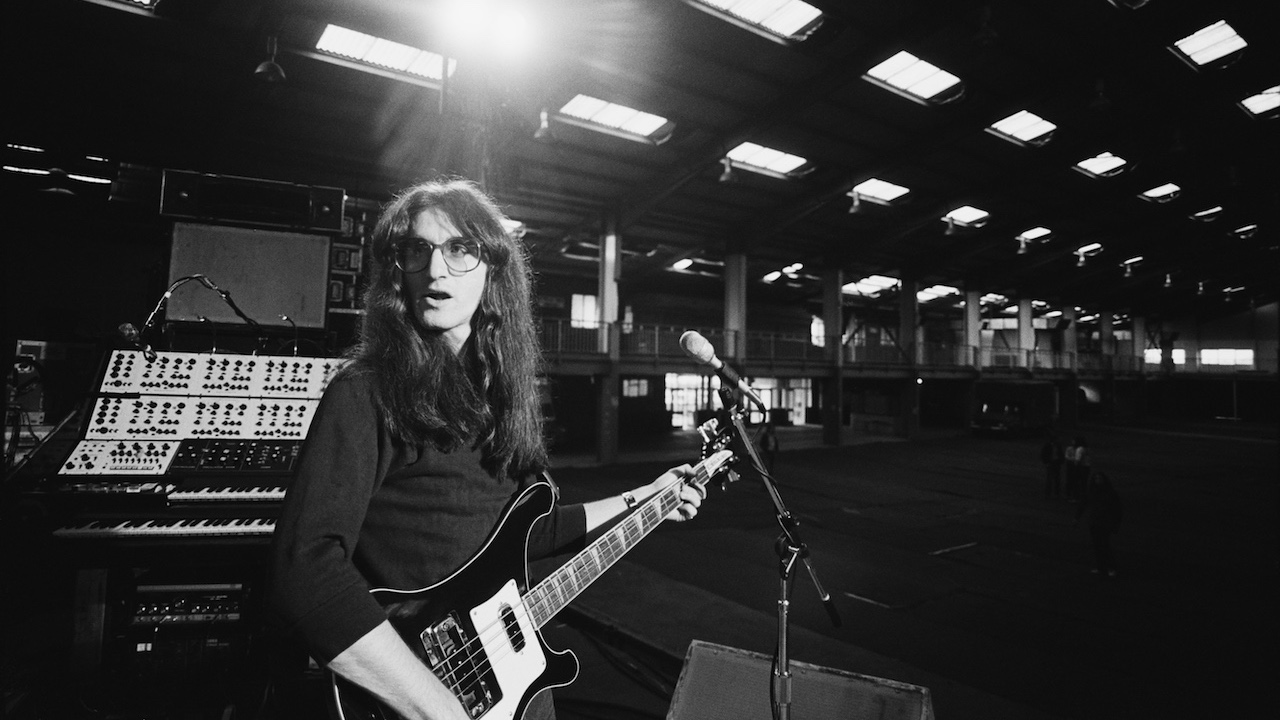“I love the sound of the Rickenbacker, but I didn’t sound like Chris Squire on it!” Geddy Lee on his Rick-O-Sound tone and ‘crossing the floor’ to Fender
The Ricky 4001 is both loved and hated by bass players: for the Rush legend it’s still a classic

Chris Squire. Paul McCartney. Lemmy. Bruce Foxton. Roger Glover. Cliff Burton. John Entwistle. At some point or other, these and many other household-name bass players have wielded a Rickenbacker 4001 (1961-81) or its successor the 4003 (’82 to date), and what a joyous noise they make, too.
Sure, the Rickenbacker 4001 looks a bit nuts; certainly, it sounds a bit eccentric. But it’s a stone-cold classic bass guitar that cuts through the most unfriendly mix and will be your friend for life.
Don’t believe us? Well, we drafted in the man who is arguably the most famous Ricky player of them all, Geddy Lee of Rush, to explain what it is about this iconic bass that makes it so splendiferous. Although he ‘crossed the floor’ to Fender more years ago than even he cares to remember, his affection for the old warhorse is unending – and frankly, what’s good enough for Geddy is good enough for the rest of us…
Do you remember the first time you saw a 4001, Geddy?
“The first time I ever saw that bass was in a Beatles video – I think it was Hey Jude. I saw Paul McCartney playing it, and first of all it struck me as a great-looking bass. When you’re a kid – and even today! – cool-looking basses have a particular value, ha ha! I don’t know what colour it was, because our TV was black and white, but I think it was a solid colour.”
When was the first time you saw one played live?
“The first time I saw someone playing one was Chris Squire, in the early days of Yes. John Entwistle played one for a short while too, but it was really Squire’s use of the 4001 that made me fall in love with it. The tone he got out of it was so clear and crisp, and it had such great definition.”
All the latest guitar news, interviews, lessons, reviews, deals and more, direct to your inbox!
The tone of the 4001 is both loved and hated by bass players: clearly you fell into the former camp.
“Let me say that I do love the sound of the Rickenbacker, but I will qualify that by saying that I love the sound that Chris Squire got out of it – and that’s the sound that made me want to buy one. When we signed our first record deal in 1974, I got my share of our small advance and the first thing I did was buy a Rickenbacker. I think I paid about $400 for it. Much to my dismay, when I plugged it in, it didn’t sound like Chris Squire!”

“I found that all through the years I used the Ricky: it had a great trebly sound, but I had a hard time getting the right amount of bottom end unless I used the Rick-O-Sound feature, which enabled you to send each pickup to a different source. I used to send the bass pickup to a bass amp and the treble pickup to an amp that was set up for that twangy sound. It took quite a lot of work to get it to sound like a classic Ricky. It wasn’t easy to get the sound I wanted!”
You play a Fender Jazz nowadays. Why did you switch?
“The Ricky worked well in the early days for the kind of tone that I wanted, but in the late '70s I picked up a used Jazz in a pawn shop and started working it into our sound almost immediately. On Moving Pictures for example, half the songs are played on a Ricky and the other half are on a Jazz. I wanted to get a bit more punch in the bottom end. You can get that out of a Ricky, there’s no question about it, but it’s a lot of fiddling, as I said earlier. What I liked about the Jazz was that it was really easy to get a great tone in the studio.”
Did you ever feel like giving the Ricky another shot on a Rush album?
“I last broke it out when we started recording the album, Snakes & Arrows, but we just didn’t like the way it sounded. We just couldn’t get the sounds out of it that we get so easily out of the Jazz, so there didn’t seem to be any point. Could we have made it work? Yes. Would we have got anything unique out of it? I didn’t think so, and neither did our producer, so we just gave up on it. I think we wanted to use it just so we could say we’d used it!”
You once told us that you bring out the 4001 for the encores just to make the people who always ask you about the Ricky shut up. Is that still the case?
“Yeah, exactly. My road crew even made some T-shirts that say, ‘Yes, He’s Playing The F***ing Ricky!’ I’ve been playing the Jazz now for many more years than I played the Ricky, but I’m still more closely associated with the Ricky.”

Do you think the Rickenbacker 4001 is still a bass everyone should play?
“It’s a question of taste, really. Different strokes for different bass folks! I love lots of different basses. Also, different basses sound good at different times: I have a fantastic Wal at home that I used for a couple of albums, and I adore that bass, but there was time when it sounded right to me and a time when it sounded really wrong to me, so I stopped using it. The Ricky is a classic. It has a unique tone which makes it stand out, and it deserves kudos for that.”
Joel McIver was the Editor of Bass Player magazine from 2018 to 2022, having spent six years before that editing Bass Guitar magazine. A journalist with 25 years' experience in the music field, he's also the author of 35 books, a couple of bestsellers among them. He regularly appears on podcasts, radio and TV.



